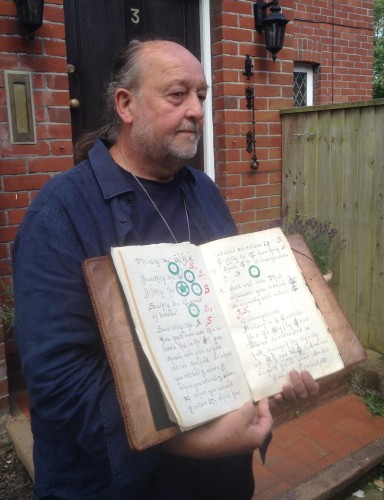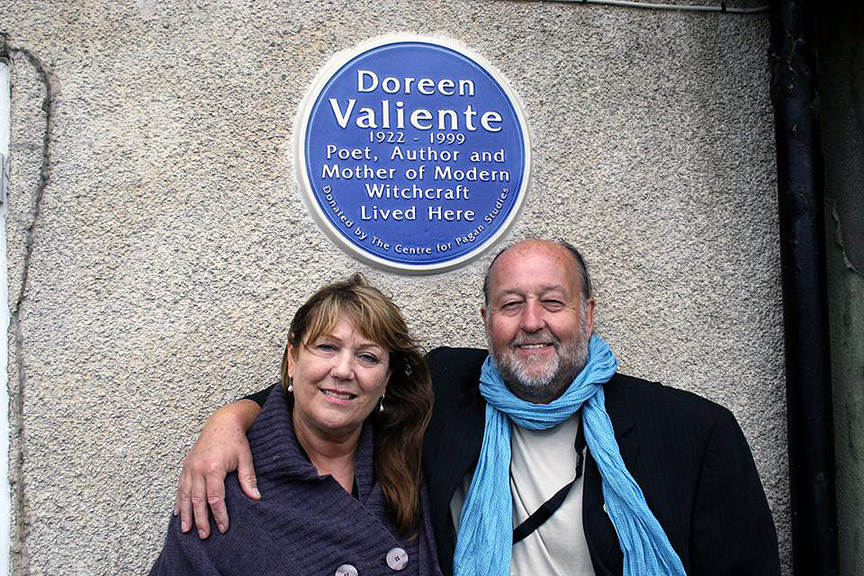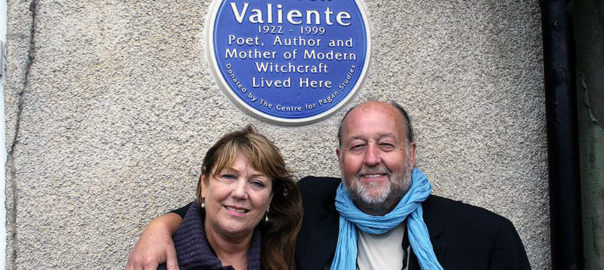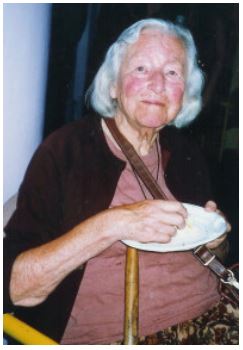Mystery Religions: the what and why
by Sarah Howe
Being a regular poster on a forum I am quite often exposed to interesting and sometimes touchy discussions centring around people’s personal beliefs and around specific traditions. One of these recent discussions was on the subject of Mystery Religions, their purpose and what the definition of ‘mysteries’ is. The question was also raised as to whether a solitary practitioner could gain access to the mysteries. These are questions I will endeavour to answer here.
So, what are these ‘mysteries’ and how can we define them?
The Oxford English Dictionary gives us this definition of ‘mysteries’
“…something that is difficult or impossible to understand or explain…”
In the context of a Mystery Religion the mysteries are the hidden knowledge and revelations pertaining to the divine and our place within the universe. These are usually accessed by an individual via a specific set of rites and rituals within a tradition or path that ‘opens the doors’ so to speak, to these mysteries. Each tradition has their own unique ‘toolkit’ (rites, rituals, symbols and practices) for unlocking these doors and allowing the individuals within that tradition the necessary set of experiences and knowledge to access and gain an understanding of the mysteries.
That sounds quite dogmatic. How does that make Mystery Religions any different to, for example, the Catholic Church?
The definition of mysteries and Mystery Religions isn’t really at all similar to anything within the Catholic Church or that type of religion. Why? Because they are what is known as ‘revealed religion’ – that is religion whereby the whole thing is supposed to have been revealed by a god or gods (sacred books and the whole shebang). These religions and their practices are freely available and open to anyone who cares to pick up a copy of their sacred text and feels that it is for them. Quite often with this style of religion, whilst the individual can pray or talk to their god(s), there is usually a member of the clergy who acts as an intermediary between the divine and the individual.
Mystery religions are the exact opposite to revealed religions. They generally don’t have a set sacred text or a set of laws or tenets or in fact any dogma that must be followed and that has been supposedly handed to them by a god or gods. Each tradition allows the individual access to the mysteries via their specific set of doors that each member must pass through in order to access them and the toolkit (rites and rituals) for doing that are different for each tradition. In addition, there is no single intermediary who acts as the mouthpiece of the divine. Each person has direct access and communes with their god or gods as feels best to them.
Wicca is a religion of mysteries and when one is initiated it is not only into to the coven, but also into the mysteries. Does this mean that you have to be in a coven to know the mysteries?
There are numerous Mystery Religions and Traditions and each one has its own ‘toolkit’ and way of perceiving the mysteries. This means that you have to be initiated into that tradition or religion in order to gain access to the mysteries of that tradition and indeed that particular group.
My experience as an initiate of a Mystery Religion is that the individuals within the tradition seem to have a similar set of experiences in terms of contact with the divine or the unseen worlds that we work with and within. It was and is the common practice of my parent coven to either not share at all or to give only very vague details of experiences to newcomers and in this way the potential experiences of that newcomer were not coloured by the experiences of the rest of the group. It was always amazing to see just how many similarities would crop up once that newcomer began to have their own experiences. This leads me to think that the particular ‘toolkit’ of the tradition is absolutely key to accessing the mysteries relating to that tradition and giving each individual similar experiences that binds the group together and gives them shared understanding and knowledge.
It is said that the mysteries cannot be told, only experienced. So why can’t a solitary have those same experiences?
I do think that a solitary can have knowledge and understanding of the ‘mysteries’ (what is known as personal gnosis), but to have knowledge of the mysteries attached to a particular tradition, one must be a member of that tradition, usually via initiation or a similar ritual. These specific mysteries are experiential and cannot be accessed by people who are not members of those traditions because they do not have access to the ‘toolkit’ belonging to that tradition or religion that allows its members to experience the mysteries particular to it.
This is a system that dates back thousands of years to religions such as the Eleusinian Mysteries of Greece and the Mithraic Mysteries or Mysteria Mater.
The mysteries are experiential and they are specific and individual to each tradition. My experiences of the mysteries through my tradition will be different to those of someone from a different tradition or of a solitary path though of course there may well be similarities and common ground between them.
I am fairly certain that a solitary witch, for example, would reach their own understandings and have their own revelations from their experiences just as well as a person following a Mystery Religion would. They may reach understanding in a different way and see things differently because of that, but that doesn’t mean they aren’t allowed to reach that understanding, or that they can’t or won’t reach it because they aren’t a member of a group.
Why are the mysteries hidden? Why are they only revealed to some people and not open to everyone?
There’s no reason they are. They just are. People have always searched for deeper meanings to life and the divine through millennia and this is just one of the ways that people try and reach that understanding. There is a huge amount we don’t know about this world and the worlds around ours, the astral and the places where the gods reside and so on. They aren’t hidden for a purpose and no one hid any of this knowledge for their own gain but it is impossible to know everything about all things and perhaps not everything should be revealed to all people all of the time.
People who follow Mystery Traditions do so because they feel that there is more to life than what is in front of our noses and they feel that the particular tradition they follow is the best one for them to access those deeper meanings and mysteries. Other people feel that revealed religion is right for them. It’s not about keeping things away from other people but about finding the right way for you to gain that knowledge and understanding and that is why the mysteries are experiential. They can’t be explained – you have to find out for yourself.
Of course it may seem as though these mysteries are only revealed to a select few and I’m sure that some people see that as a little bit elitist, which of course it is in many ways. The mysteries are revealed to those people who have a thirst for that kind of knowledge, just as the mysteries of science are revealed to scientists who look for particular things and make new discoveries. So, it is absolutely true to say that the mysteries are not revealed to everyone because not everyone looks for them or wants to know. The people that do want to know go and seek out a way that suits them; sometimes that is alone and sometimes that is as part of an established group or religion.
How did the founders of these traditions find those specific doors and tools to access these mysteries?
It would be hard to categorically state how the founder of any of the Mystery Traditions, ancient and modern, came to find their particular way. That said, I think we could guess based on historical accounts and so on that they either came to it via experimentation of their own or perhaps because they were part of a similar (pre-existing) tradition prior to forming their own. Don’t forget that many of the people who formed some of these Mystery Traditions (thinking of the more modern ones here) were intelligent people who had already spent a lot of time in research and practice of various occult and magical paths before hitting upon a combination that worked for them and setting that combination down to form their particular Mystery Tradition.
If it was written down, doesn’t that make it set of laws, dogma and rules?
Writing something down obviously does not make it dogma, law or a rule. As an example: Initiatory Wicca has the Book of Shadows that is handed from initiator to initiate; but this is not akin to the Bible, the Qur’an or similar sacred text, which are supposed to be the word of God. The Book of Shadows is essentially a guide, giving the basic rituals and rites, spells and magical workings that have been used within that tradition. This Book of Shadows will certainly vary from tradition to tradition (the Gardnerian Book of Shadows will be different from Alexandrian etc.) and may even have some variation in the various lines within that tradition but there will still be the same basic structure. This means that each Wiccan from that tradition will share the same basic experiences and have the same basic toolkit for accessing the mysteries. However, the Book of Shadows is not a laid-down-in-stone, word of God, must-be-abided-by rulebook. It gives the basics, nothing more. It is a part of the toolkit but the rest is gained from the group, not from the book.
Given that some of these rites and rituals are available to the public, wouldn’t someone who read and enacted those rituals experience the mysteries of that tradition and be able call themselves an initiate?
You don’t become an initiate of a Mystery Tradition just because you happen to get your hands on a copy of their rituals. The written portion of the ritual is a very tiny part of the experience. The rest is handed to the initiate verbally and experientially. So, even if you did get a copy of the ritual and enact it with a group of friends (because you wouldn’t be able to do these rituals alone unless you developed several sets of arms and multiple personality disorder!) there would be symbols and language within that ritual that you would not understand unless it was explained to you and you would be missing the experiential and verbal teaching aspect, which is actually the biggest part. You might be lucky and stumble onto a small part of what an initiate of that tradition experiences but without the whole of the teaching and experience, you wouldn’t find the right doors and experience the same mysteries that an initiate of that tradition would experience and understand.
Quite simply, the only way to experience the mysteries relating to a particular tradition is to become a member of that tradition.
So as a solitary, how would you go about approaching the mysteries? Using the definition from the beginning of this article, how would you go about finding out about our relationship to the divine and our place within the universe?
Well, there are several ways of doing this, such as:
- Finding out about the folklore and mythology in your locality. Are there any local gods for example?
- Getting out and about in the local natural environment, whether that be woods, seashore, fields or the wild and windy moors. Get a feel for the place, its energy and peculiarities.
- Meditation and path working: focusing the mind and travelling into those unseen worlds to make contact with elementals, spirits and divine energy and learning what they have to teach you.
- Creating an altar space. Really thinking about what you put on that altar and why. Does it reflect a relationship you have with a particular god or goddess or is it more about your surroundings and the seasons? Maybe both?
- Creating rituals. These are personal to you and you will probably put a lot of thought into what you want to achieve and how you want to achieve it. Is it a ritual to honour a deity or to celebrate the start of Spring?
- Music, dance and poetry. These are good ways of focusing on a particular thing and can help to create a magical atmosphere or even induce an altered state of mind in which experiences can be gained.
So, going back to the dictionary definition of ‘mysteries’, we can summarise that they cannot be explained or written down in a book for all to read. They must be experienced and how those experiences are arrived at is for the individual to decide.
© Sarah Howe 2011





